This is a sponsored post written by me on behalf of Royal Canin. All opinions are 100% mine.
If you've been following along, you'll know we got a quarantine kitten and so today I wanted to share my tips for How to Care for a Kitten with you along with ideas to acclimate a kitten to a new home, to new food, and help them integrate into your family. Keep reading for all the details about everything we have learned so far.
This post may contain affiliate links. Any purchase using a link on my blog helps to support my blog while not costing you a penny more. Thank you for supporting my site.
How to Care for a Kitten
Let me start off by saying that we have a barn kitten (aka an outdoor kitten). That means he lives outside. Don't worry, we built the coolest cat house EVER and you should totally check it out HERE. It helps keep him safe from predators and have a safe, warm, dry place to go whenever he wants to during the day. And we currently lock him in at night for extra safety. I should also mention that because we live in the PNW, we have very moderate weather. If it does become too cold, or too hot, we will of course make sure our kitty is inside and at a safe temperature. So let's chat about cat care! Please note that while this list is NOT exhaustive or fully inclusive, I wanted to share a few things we have learned along our journey with you. But first...did anyone else get a quarantine pet?
Pets can be extra amazing especially during quarantine times
Getting an outside cat was on our list of things we had already planned on doing. So he wasn't a spontaneous acquisition, he was a well-thought-out plan, with exceptional timing! Did you know that according to one survey, 75% of American cat owners say they couldn’t have gotten through the quarantine without their pet? And 57% of cat owners said that having a pet made them feel less alone, while 49% said it helped them feel less anxious. Wow. I will say that my kids have really loved having a pet, and even my husband and I love snuggling with our cute little kitten. So I can understand how pets can be therapeutic and calming, especially during uncertain times. Since being home, it is reported that 66% of cat owners surveyed learned or noticed something new about their pet. That's pretty cool. And in good news, because of the extra time spent together, the survey found 66% of pet owners plan to change how they care for their pet after COVID-19. It is amazing to think that this quarantine time has changed how we care for our furry friends. According to the same survey, to thank them for all the things they did for us during this time, 36% of pet owners plan to take their pet to the vet once quarantine ends to make sure they're healthy. Yay for taking care of your pets!
Let's chat about a few things we have learned about how to care for a kitten during this time.
Cats need time to adjust to a new home
Barn cats need time to adjust to a new home and new surroundings. When we first brought our kitten home, we let him be outside only with us. (We spent a lot of time outside.) As he got more used to his new home we started to allow him to wander more without us. Now he stays outside most of the day whether or not we are inside or outside. He can get in and out of his home any time he needs to, so he always has a safe place to go. And my kids go outside a lot to play with him so he is very social, gentle and loving with people. But we also hope that he will be a great mouser one day too!
Cats need a safe place
Outside cats need a safe place to call home. We made a DIY Cat House that has been perfect for our current situation. Some people have a shed or barn for their outside cats to go to. And some people allow their outside cats into their garage at night. No matter how you choose to house your cat, make sure they always have a safe place to go. Cats also need bedding (we got this cute blanket HERE) and proper dishes to eat out of. And our cat has loved playing with this toy HERE.
Kittens need time
Kittens will thrive and will be more likely to like people if they get lots of time with their humans early on in their life. This is one of the reasons it worked out so well for us to get a kitten during the quarantine. With everyone home, our kitten has gotten so much additional time with us, it has been wonderful. We have spent lots of time petting him, cuddling with him, and playing with him. He quickly became a loved member of our family.
The right food is important
Did you know that they make food for different stages of life for cats? Just like it is important to fuel our bodies for our own life stage, cats need proper nutrition depending on their age too.
Here are tips for feeding a kitten:
- When you first get the kitten, continue using the same food he/she was eating at their previous home if possible.
- When our kitten was really little, we mixed the dry food with a little water to make it soft and easy to eat. Wet food is also a great option for tiny kittens.
- When changing food brands, flavors, etc., slowly mix in the new food with the old food in increasing amounts to transition them to new food. This will help their tummy adjust gently to the new food.
- We started feeding our little guy small amounts of food 4 times a day (that's what he was used to when we got him, so we wanted to keep him consistent). Over time you can decrease the number of times you feed cats, usually increasing the amount of food for each feeding. Always follow the recommended amounts on the back of most cat food for specific guidance. And follow any vet guidance as well.
- Always make sure they have clean water available to them.
Litter boxes
Ok, litter boxes with outside cats are a bit controversial. On the one hand, they can just go potty outside. On the other hand, if they are small kittens, and/or you don't want them wandering at night, you may need to give them a spot to go. Because our kitten was already litter box trained when we got him, we made sure that he had access to a litter box all the time in his house. As he has spent more time outside, and now spends very little time in his house, we have moved the litter box outside to give him more room in his house. Eventually, we hope to no longer need a litter box, but transitioning always takes time, and so we are making that transition slowly.
Watching for signs that something could be wrong
When learning how to care for a kitten, it is important to watch for concerning behaviors. With so much time at home getting to know our kitty, we have been able to be very aware of his normal habits and things that may not be normal. Cats are different from dogs and often won't come to you if they are hurt or don't feel well like a dog might. So here are a few things to watch for with cats that might indicate that he/she is not feeling well:
- Changes in appetite or water intake
- Coughing or sneezing
- Acting lethargic or not like his/herself
- Vomiting
- Changes in stool quality – either softer or harder than usual
- More or less urine in the litter box
If something changes it is important to seek proper veterinarian care.
Cats need proper vet care
Indoor and outdoor cats both need proper vet care. They need regular shots, vaccinations, and check-ups. Many cats aren't taken in regularly. In fact, in a survey, 6 in 10 people said they only take their cat to the vet when something is wrong versus taking them in for regular check-ups. 23% of those surveyed don't believe that cats need to be taken into the vet as often as dogs. Spoiler alert: that's not accurate. 35% believe that indoor cats don't need to be taken into a vet as often as outdoor cats and 24% don't think that indoor cats need to be vaccinated. Spoiler alert: both indoor and outdoor cats need to see a vet regularly and be vaccinated. It is so important to take care of your kitten well. Even with a pandemic going on, regular care is super important. In fact, I just made an appointment for our little guy to be neutered next month because I understand how important proper, timely care is for our kitten.
Tips for pandemic pet care
It may feel overwhelming, and if you are in an area that is still mostly shut down, pet care might be a little more complicated. But it is still possible and it is still important to seek proper care for your pet. Here are a few tips for pet care during a pandemic:
- Many clinics and vet offices are doing curbside services. You will stay in your car while your pet receives the care they need in the clinic. You can tell your vet team what's going on, your concerns, and the reason for your visit over the phone while they examine your cat.
- Mobile vet services are becoming very popular and can be really convenient because the vet comes to you! They often provide routine visits, sick visits, hospice visits, or other specialized care.
- Emergency clinics and specialty hospitals are also open if a need arises.
- Telehealth may also be an option for some reasons. Ask your vet if a virtual appointment is available and feasible.

Learn more about how to care for a kitten
Here are a few ways you can learn more about how to care for your cat or kitten, cat health, and receive free services:
- Watch the new web-series: Catology Presents Kitten Lady and Friends
- Stay Curious is a great resource to learn more about cats and their specific needs
- Ask a vet, for free! You can receive a complimentary chat with a veterinarian 24/7 brought to you by Royal Canin and Ask.Vet
- Purchase your favorite Royal Canin cat food from PetSmart and you can receive a free vet visit from Banfield.
- If you purchase Royal Canin cat food from Chewy.com, it supports vet care for shelter cats through GreaterGood.org
- Enter to win a prize pack to help you get ready for your cat's next vet visit by entering the #Cat2Vet sweepstakes. Every entry also receives a free sample of Royal Canin Hematuria Detection by Blücare: enter the sweepstakes now
So I want to know, who else got a quarantine pet? You might enjoy these posts:



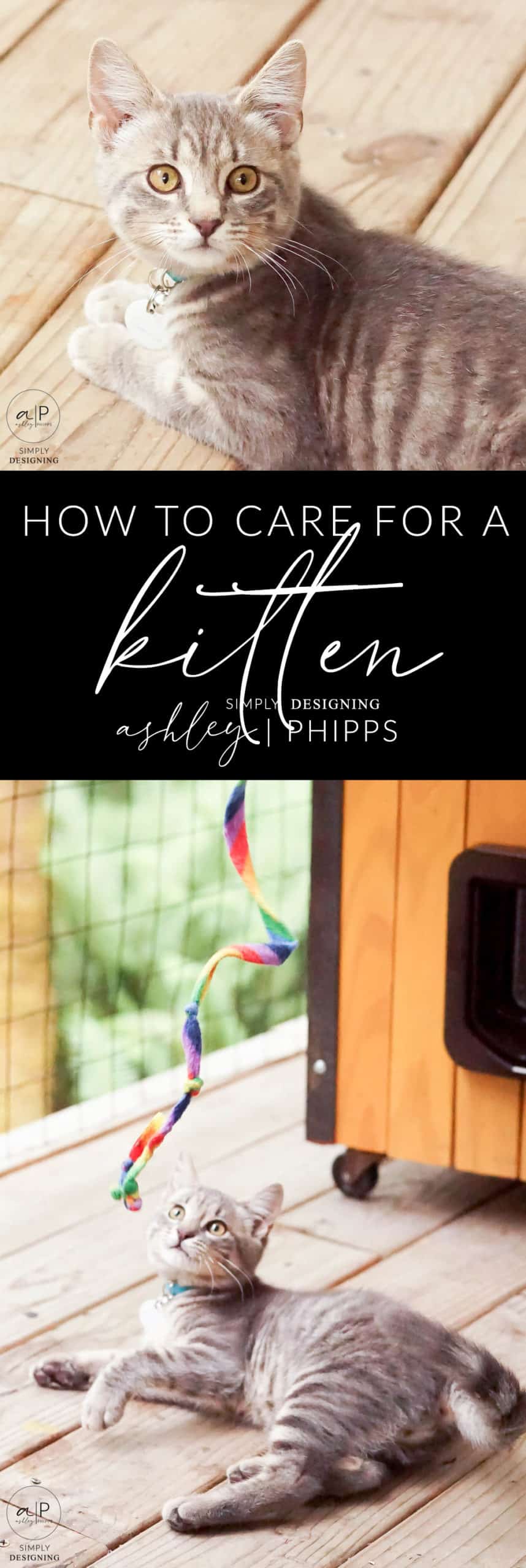
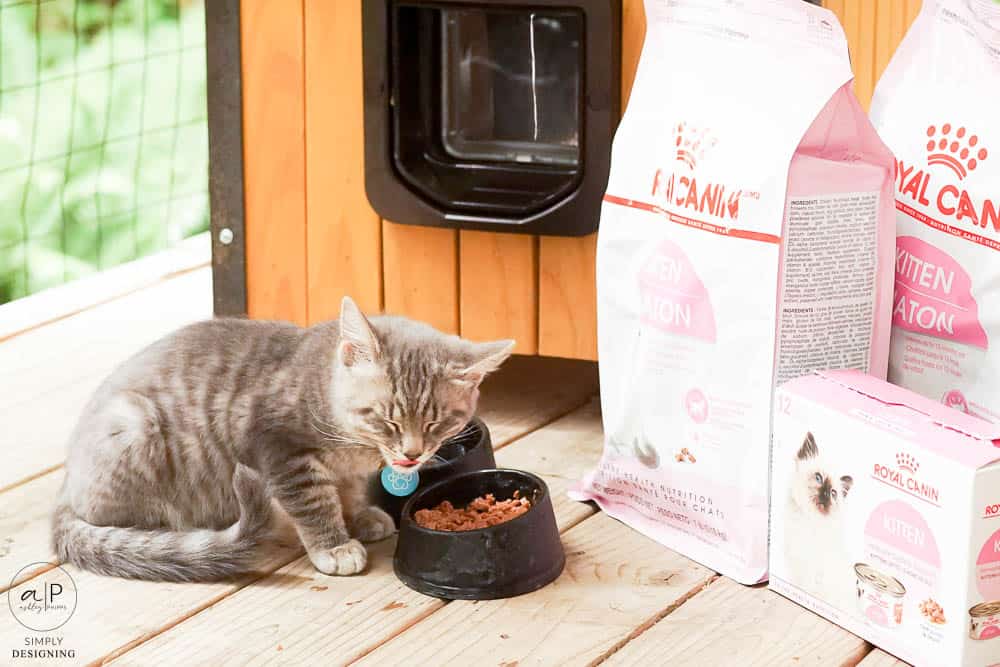
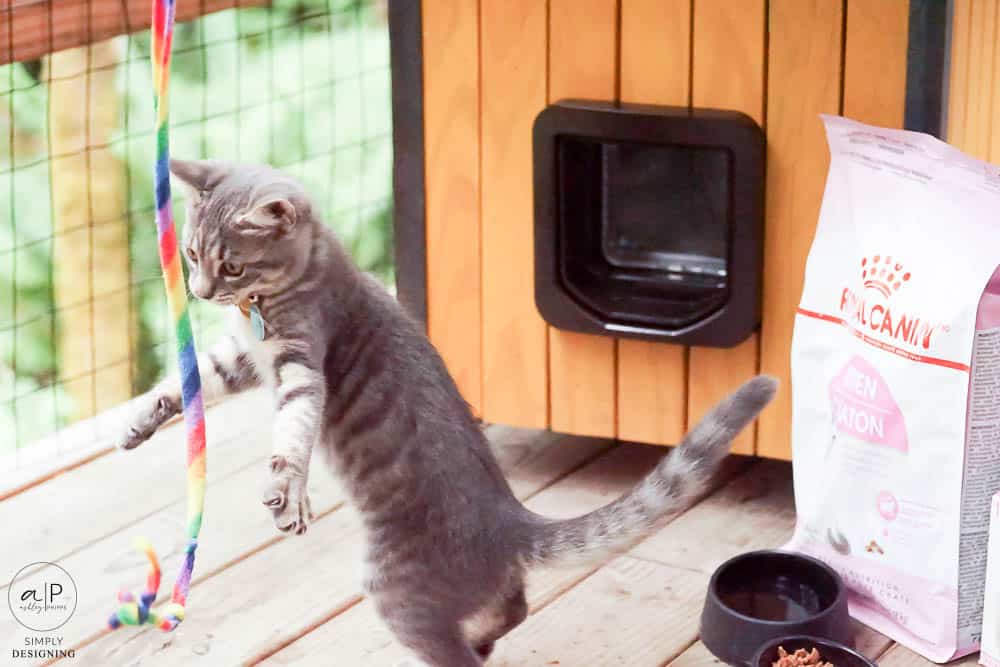

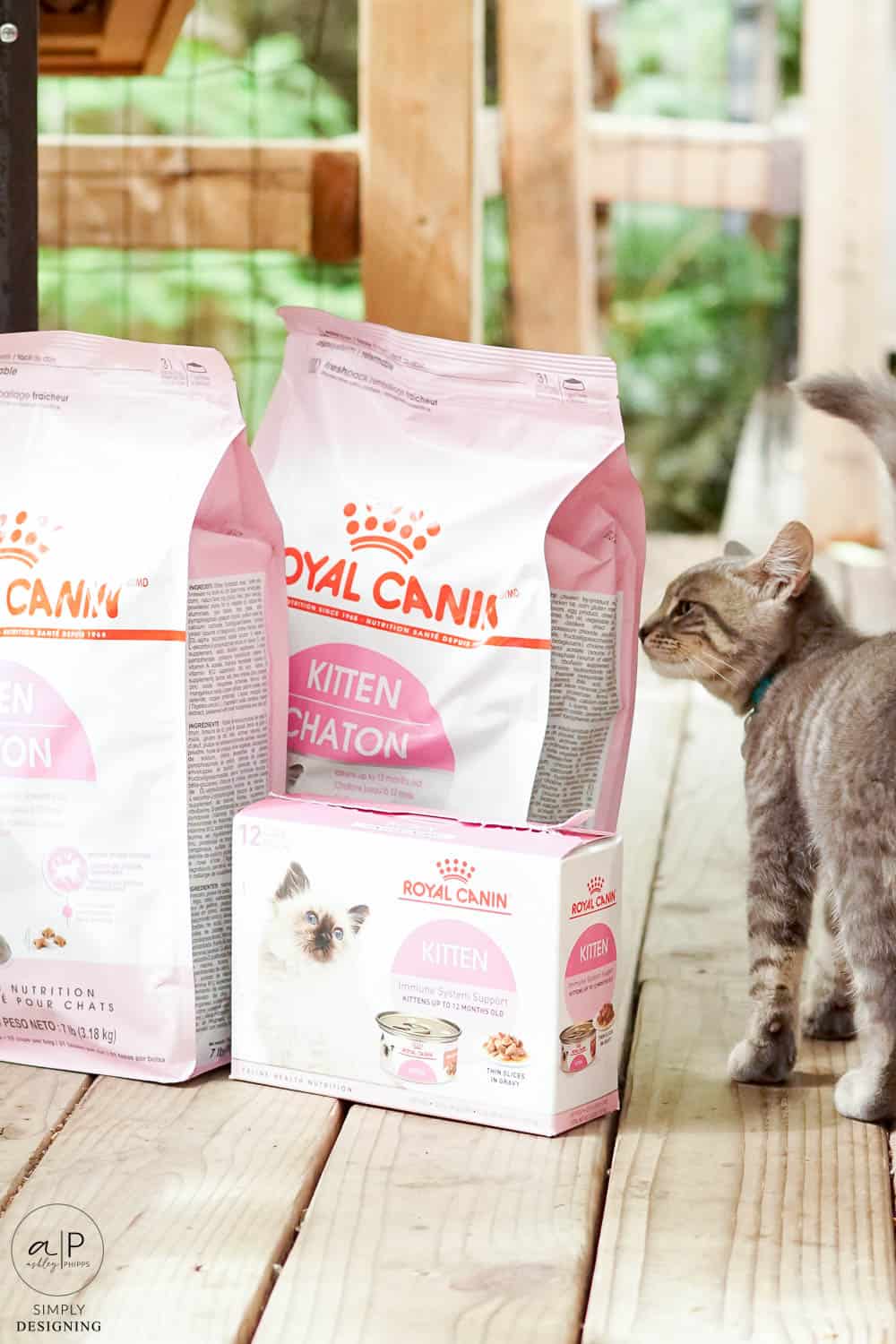

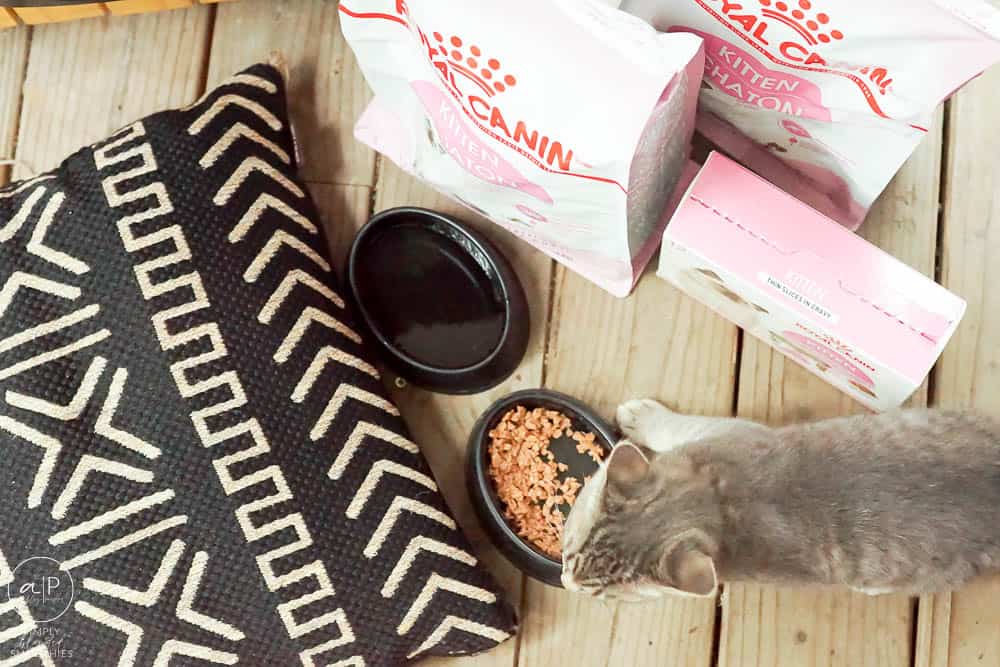
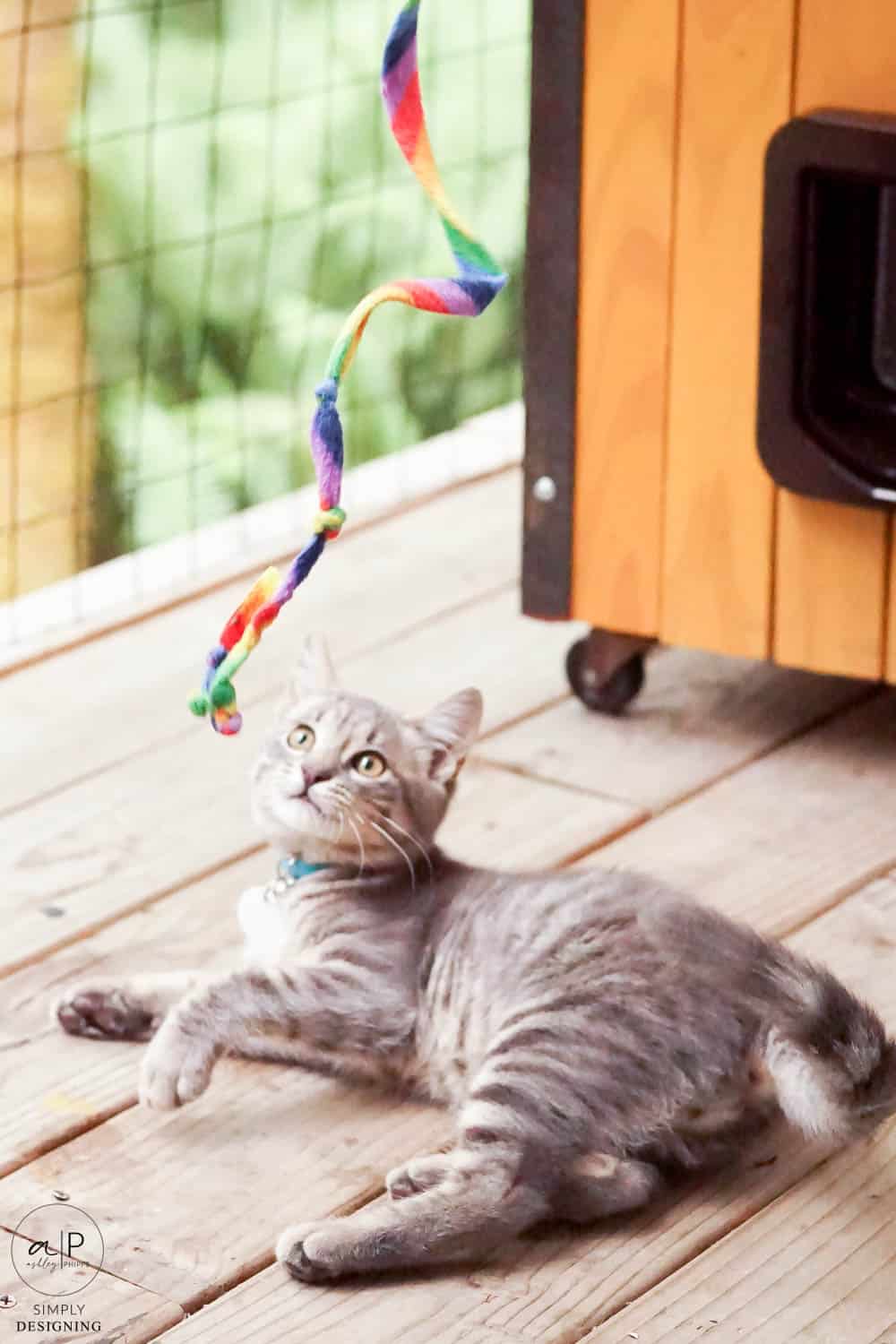
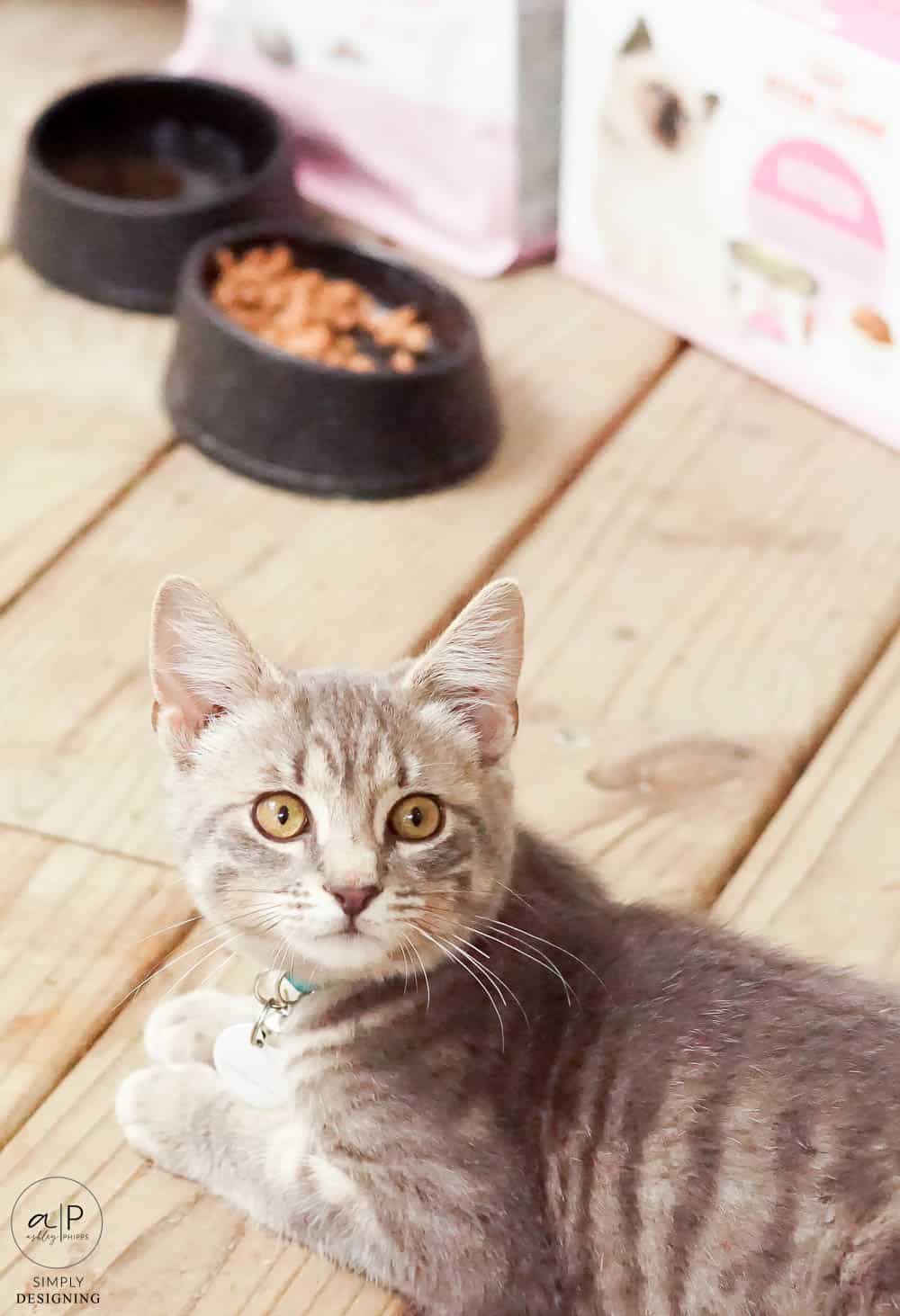




Leave a Reply